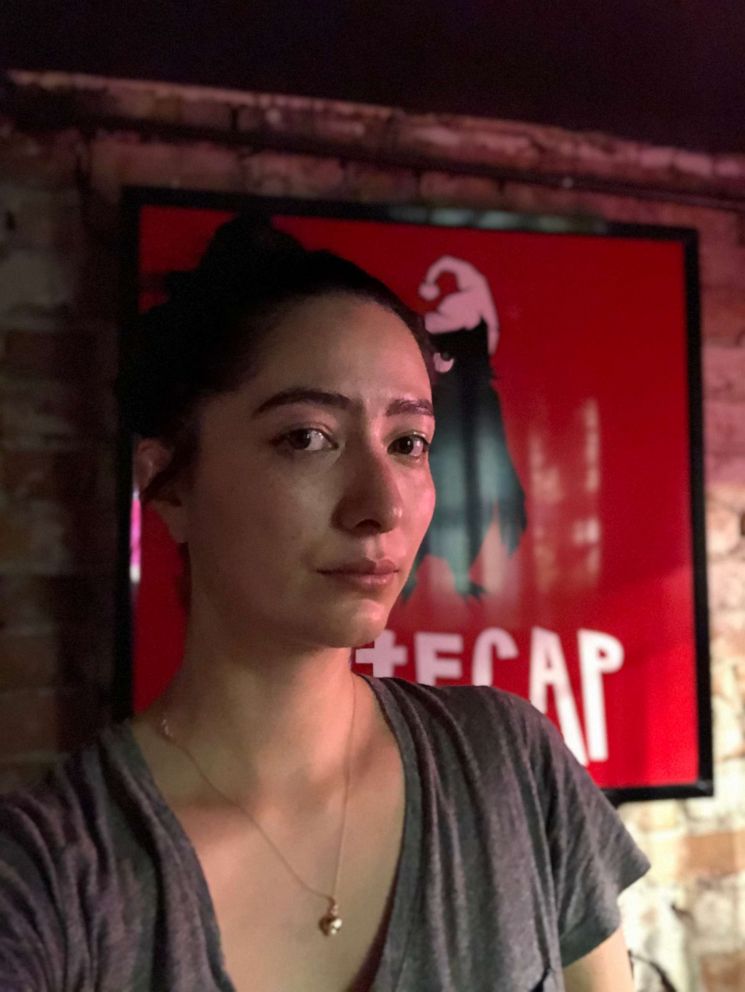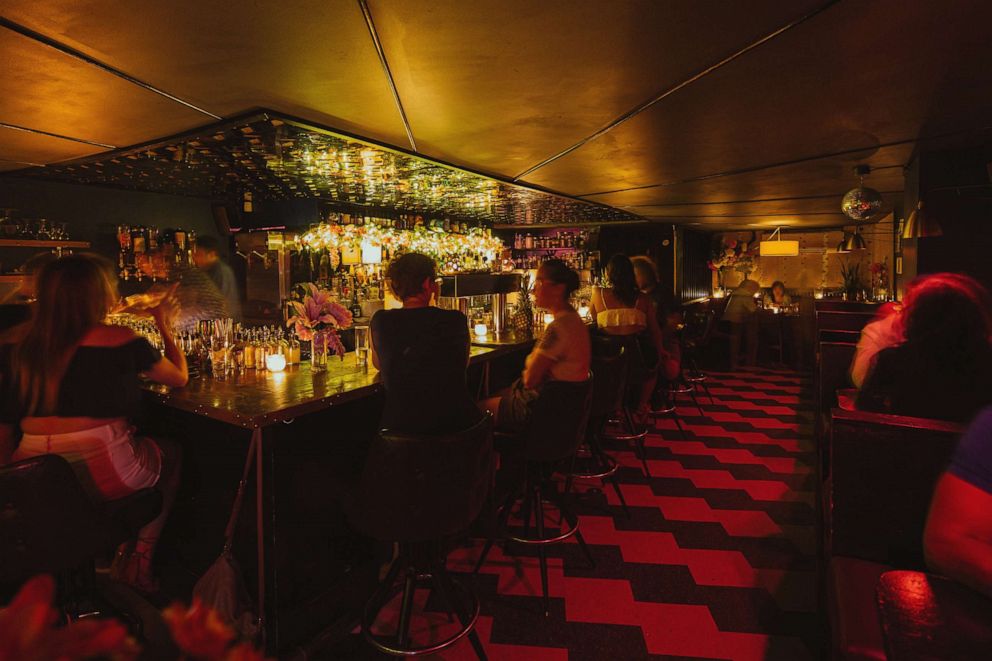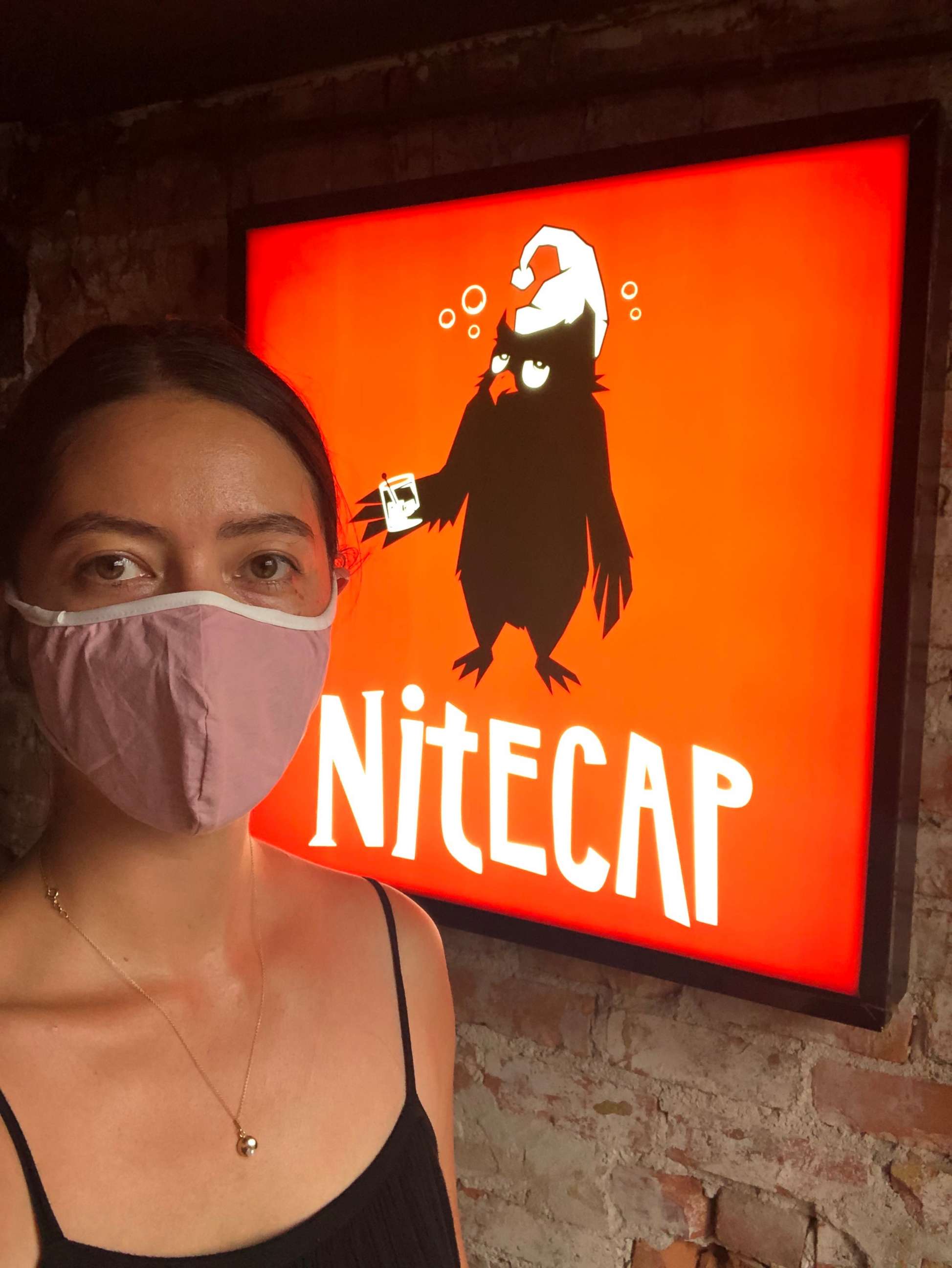Bar owner forced to close amid the pandemic shares 'drastic' view on saving bars, restaurants
After months of pleading with their landlord, the Nitecap's owners had to close.
Like so many small business owners devastated by the pandemic, one New York City bar owner who had hoped for a lifeline, a plan of action or some sort of government relief to have a shot at trudging through these difficult times, made the hard and increasingly more commonplace decision to close permanently.
"There was going to be no relief. And the government wasn't showing any signs of offering any sort of relief. And we had to call it quits," Nitecap co-owner Natasha David told ABC News' daily news podcast "Start Here." "We kept pleading with our landlord to see if he would negotiate the rent at all -- But the process actually dragged everything out for an additional five weeks. Which also means another month of rent. So the debt just built and built and built."

With tens of thousands of dollars in debt, David, 35, has a grim outlook for others in the same industry.
She explained that Nitecap had to execute what's known in commercial real estate lease terms as a "good guy clause," which she said is "basically -- where if you want to leave your lease early -- you have to give your landlord X amount of notice and pay rent up until that point. So besides the back rent that we still owed, we now also owe them an additional four months of rent."
After the Nitecap team paid rent in March, the balance from April to December amounts to "about $95,000," David said.
"In some kind of weird sense, I feel sort of this huge sort of sigh of relief. It starts affecting every part of your life -- you don't sleep, how you behave around your children -- even though it's not the outcome I wanted, I'm grateful that I have a decision," David said.
"On the other hand I'm completely devastated. Anyone that's doing this isn't doing it for some fun little side project. It's your heart, it's your work, and your life's passion," she added. "So to see it just get so disregarded and neglected by the very system that's supposed to be supporting you feels, for lack of a better word, very hurtful. And I'm very angry."
According to Yelp's September economic impact report, more than 32,000 restaurants have closed their doors since the pandemic began, 61% of those are closed permanently. Stimulus talks, including help for businesses, have stalled in Congress.

"I don't understand how people's livelihoods are something we can be debating this long," David said. "The fact that the government is basically playing political chess because the election is coming up, it feels disgusting. It shows such a lack of care for humans."
She explained that the entire supply chain from their linen providers to wine producers are all impacted by the loss of her and others' businesses."It's a huge trickle-down," David said.

A successful relief package for the disproportionately hard-hit hospitality industry, in David's mind, would have included a grant to pay rent.
"What really should have happened is the government should have stepped in and said, 'Cancel rent, cancel mortgage payments, the landlords don't have to pay mortgages,'" the Manhattan bar owner suggested. "Let's just all be in this together and treat this like the crisis it is and try to come out of it together and as a community."
With many bars and restaurants struggling in New York City and across the country adapting to the constant capacity and seating restrictions, operating at a loss or barely keeping their heads above water, David would suggest a drastic change to move forward based on her firsthand experience.

"I'm so grateful to people who feel like they are able to go and support their local businesses -- I think that is great," she said. "I know this is a huge, drastic step and it's a big ask, but I really, really, really, truly believe that restaurants and bars should be closed right now."
"I think that the government should step in, take drastic measures and cancel rent," she continued. "I think that is the way we get through this and that we have a stimulus package -- that takes care of the employees -- unemployment gets extended, there's an extra little boost -- that's that's how you get through something like this."
The thin margins on outdoor dining after "you have to invest thousands of dollars" on new sidewalk structures, outdoor furniture, barriers and now equipment like heaters heading into winter months just to serve customers under new guidelines, has made the process of reopening costly.
"All these burdens are being put on the business owner and the government isn't taking any of the burden off. It's all getting put on the shoulders of these small businesses that are barely keeping afloat right now," David said, adding that "the most frustrating part" is that nothing has changed since she last spoke to ABC News in March.
One of her close friends and a fellow female restaurant owner, Claire Sprouse, recently offered a powerful breakdown of those thin margins amid the pandemic to highlight the immediate need for support.
David told "Good Morning America" that despite the current hardships for so many, "you have to find the positive in a situation like this and in a world that is suffering so greatly collectively."
"The restaurant industry will be back -- it might take time," she said. But as an industry, David thinks this time is "a huge opportunity to make some systemic changes and overhaul things that weren't working and didn’t feel right, and come back and have a whole new system."
"Hopefully everyone seizes this opportunity so that we can return to something even better," she said.
This report was featured in the Friday, Oct. 23, 2020, episode of "Start Here," ABC News' daily news podcast.
"Start Here" offers a straightforward look at the day's top stories in 20 minutes. Listen for free every weekday on Apple Podcasts, Google Podcasts, Spotify, the ABC News app or wherever you get your podcasts.